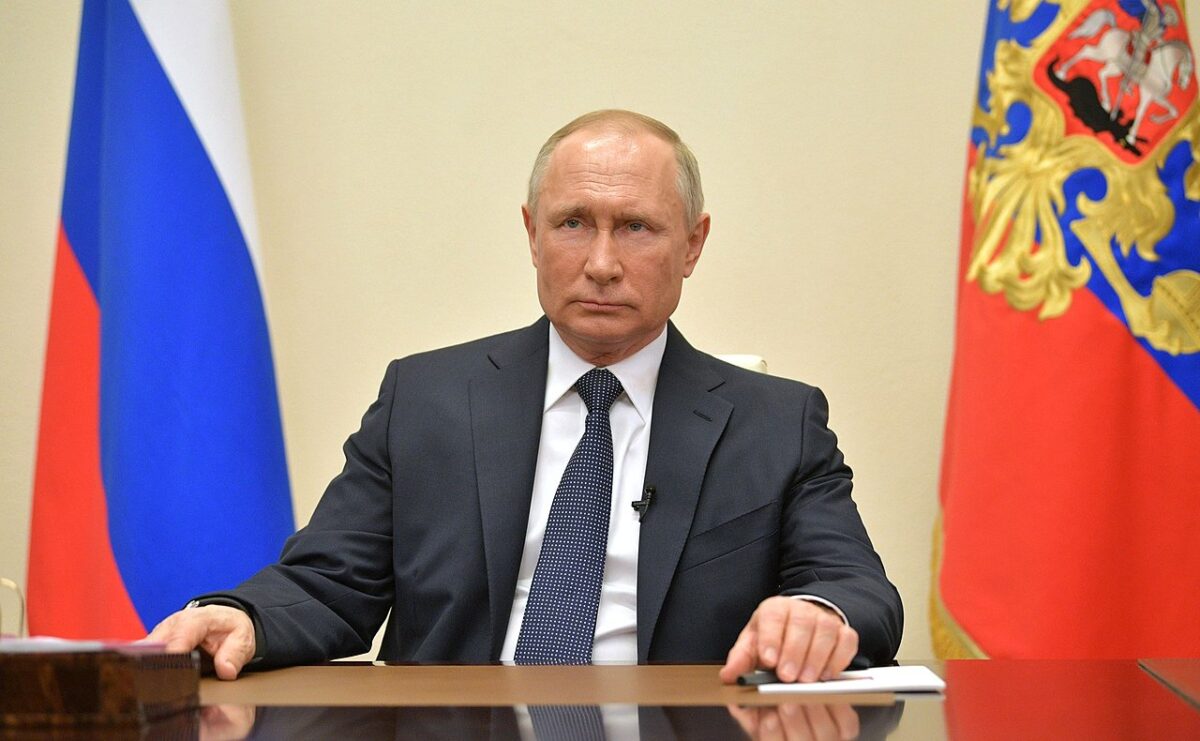As pro-Russian separatists battled to decouple eastern Ukraine from the rest of the country from 2014 onward, the Russian government claimed that Jews and other minorities were endangered by the new, pro-Western Ukrainian government, or, as it called it, the “fascist junta.”
“Of course, this was pure agitprop, but that didn’t stop Russia’s state-controlled media from unleashing a torrent of fake news asserting that Ukraine’s Jews were being harassed and displaced by a hostile administration,” writes Sam Sokol in Putin’s Hybrid War And the Jews: Antisemitism, Propaganda and the Displacement of Ukrainian Jewry, published by the Institute for the Study of Global Antisemitism and Policy in New York City.
In the face of Russian aggression, Ukrainian nationalism surged and Ukraine launched a campaign to construct what Sokol describes as “an alternate national historiography honoring those who fought against the Soviet Union.”
During this process, Nazi collaborators such as the late Stepan Bandera and Roman Shukhevych were rehabilitated, while far-right militias fighting the Russians, like the Right Sector, were tolerated.
These are the twin themes that Sokol, a former Jerusalem Post reporter, fleshes out in an admirable feat of reportage in his thoroughly-researched, well-written book.
With fighting in eastern Ukraine enveloping its towns and cities, some in the Jewish community expressed concern that the rampant violence could spill over into attacks against Jews. In one city, where a rabbi advised his congregants to flee, Hebrew schools were temporarily closed and Orthodox Jews avoided public places.
Their anxiety was a not exactly misplaced. “Jews have long memories and Ukraine has a history of violence,” says Sokol. “Between 1905 and 1919, tens of thousands of Ukrainian Jews (were) murdered in pogroms connected to the political upheaval then engulfing the Russian Empire.”
But were Jews really in physical danger as the Ukrainian army struggled to defeat pro-Russian separatists? Sokol quotes Ukraine’s chief Reform rabbi, Alexander Dukhovny, as saying that while marginal Ukrainian groups hewed to a policy of antisemitism, the majority of Ukrainians did not hold such views.
This is not to say that antisemitic incidents were nonexistent in Ukraine from 2013 to 2016, the period Sokol focuses on. He tells us that two Holocaust memorials, in Poltava and Oleksandriia, were defaced with graffiti reading “death to kikes.”
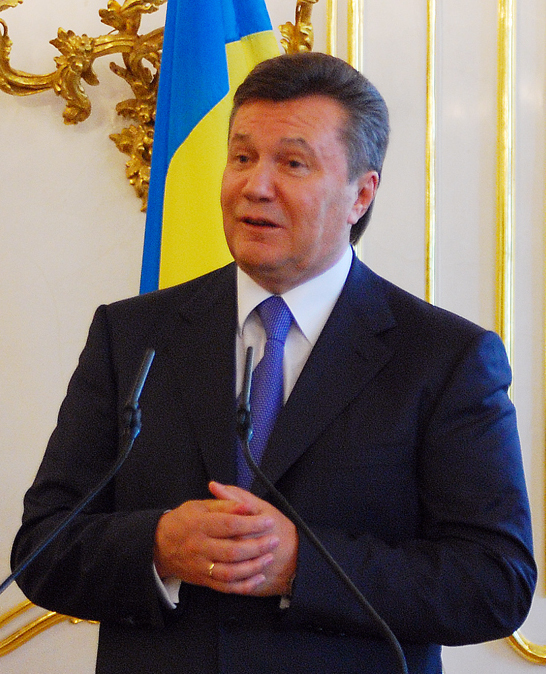
Facing the possibility that the Ukrainian leadership might align itself with the West following the ouster of pro-Russian Ukrainian President Viktor Yanukovych, Russia launched a concerted “campaign of delegitimization” against Ukraine.
At a press conference in Moscow, Russian President Vladimir Putin denied that his army was helping Ukrainian separatists, but said that Yanukovych had asked him “to protect the lives, freedom and health” of Ukrainians. “What is our biggest concern?” he asked rhetorically. “We see the rampage of reactionary forces, nationalist and antisemitic forces, going on in certain parts of Ukraine, including Kiev.”
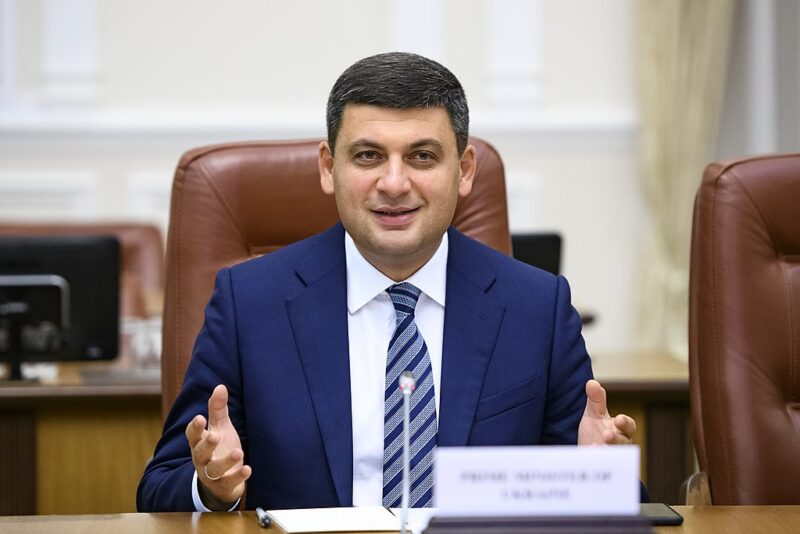
Jews in Ukraine generally reacted negatively Putin’s accusations. The Ukrainian branches of the Reform and Conservative movements sent Putin a letter, accusing him of propagating “lies and slander,” pointing out that the Jewish mayor of Vinnytsia, Volodymr Groysman, had been appointed to the cabinet as a vice-prime minister, and saying they did not wish to be “defended” by a foreign power.
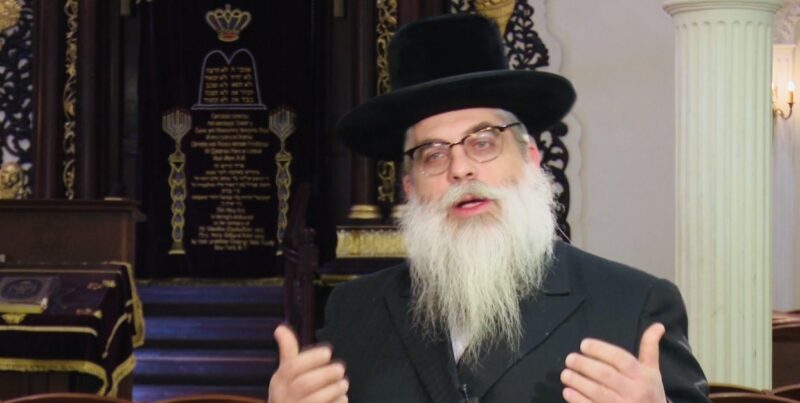
The chief rabbi of Ukraine, Yaakov Bleich, accused Russia of fabricating stories to justify a land grab and said, “The Russians are blowing (Ukrainian antisemitism) way, way out of proportion.”
The rabbinic leadership in Russia, led by Rabbi Berel Lazar, defended Putin.
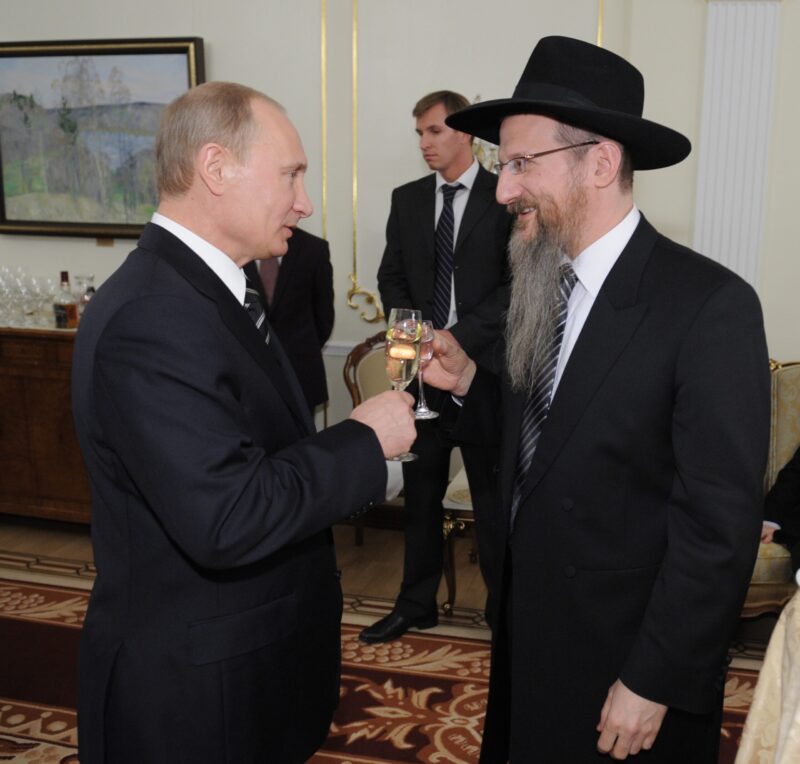
The Russians continued to insist that Ukrainian Jews felt threatened and were emigrating. Sokol begs to differ. “This claim was as far from reality as possible. Tens of thousands of Jews would end up fleeing, but not one out of the dozens interviewed for this book indicated that he or she left because of antisemitism.”
Citing figures from Israel’s Ministry of Immigrant Absorption, Sokol says that more than 30,000 Ukrainian nationals immigrated to Israel from 2014 to 2018. Of these, some 2,000 came from the eastern cities of Donetsk and Luhansk.
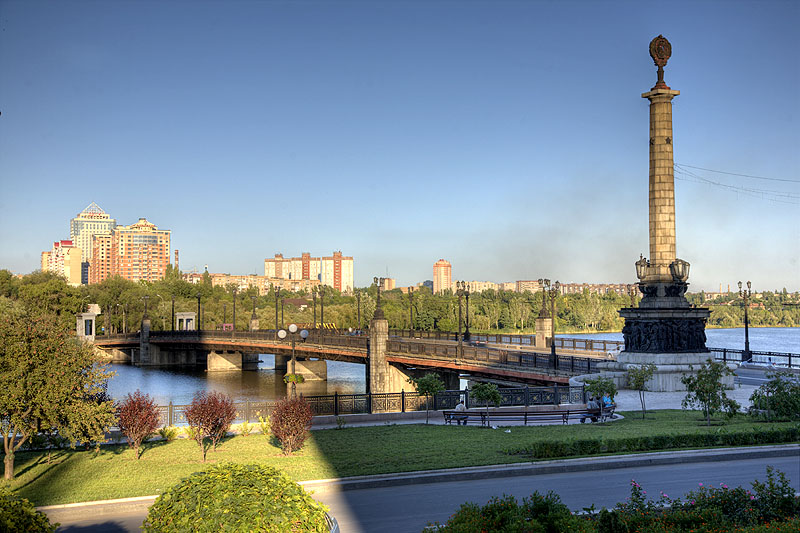
Sokol explains that Putin’s instrumentalization of the Jewish issue was intended to awaken Russian national memory related to World War II. “The memory of the millions of lives lost to the struggle against Nazism and fascism still resonates in Russia today. By packaging the war as a fight against the modern-day successors of the Nazis, Putin was able to tap into a reservoir of emotion, which is incredibly useful in any attempt to mobilize popular support.”
He adds, “Accusations of antisemitism also provided Putin with a pretext for interfering in his neighbors affairs while supplying a ready-made propaganda weapon for the delegitimization of the new administration” in Kiev.
According to Sokol, Russia was quite likely behind at least some of the antisemitic incidents in Ukraine. As he puts it, “There have been credible reports of agents of Russian influence fomenting ethnic tensions within Ukraine.”
In the interests of fairness, he writes that Ukraine also has exploited the issue of antisemitism to defame Russia.
Sokol, however, acknowledges that “the taboo against public antisemitic expression, so strong in the west, is much weaker in Ukraine, just as it is in the rest in the former Soviet Union.”
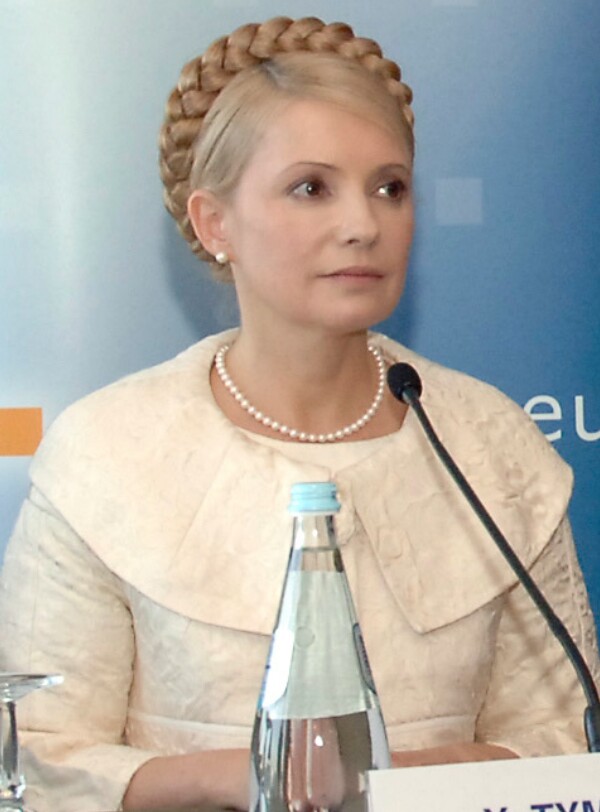
He cites an example. Yulia Tymoshenko, the former Ukrainian prime minister, was forced to apologize after she was filmed laughing at an antisemitic comedy act at a meeting of her Fatherland Party.
In the estimation of Israel’s Ministry of Diaspora Affairs, he notes, Ukraine registered the largest number of reported antisemitic incidents in the former Soviet Union.
In one of his most substantive chapters, Sokol describes how Ukraine has elevated antisemites into heroes. The Ukrainian parliament, the Rada, passed four bills in 2015 designed to make a clean break with Ukraine’s Soviet past, to buff up the tarnished image of the Organization of Ukrainian Nationalists (OUN) — which collaborated with Nazi Germany — and to ban the denigration of groups which had fought for Ukrainian independence during the war.
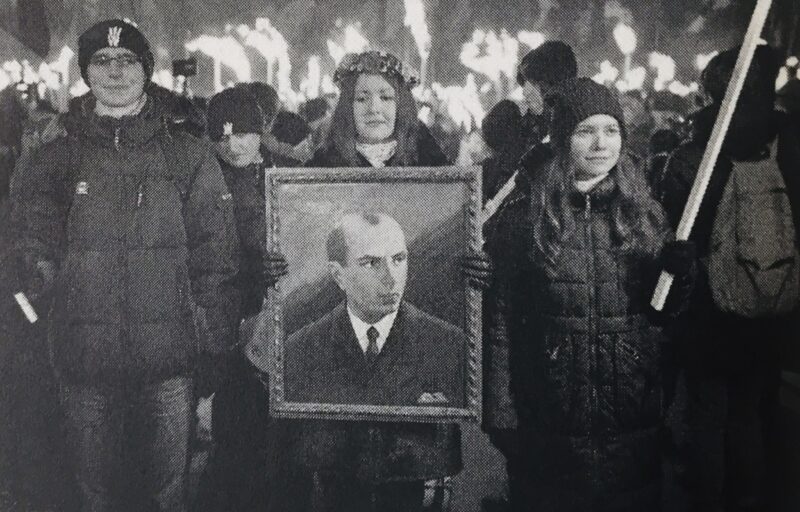
School texts were rewritten, streets were renamed and statues and monuments were erected to pay tribute to such dubious figures as Bandera. And efforts were made to dispel “myths” of Ukrainian nationalist participation in the Holocaust.
“The Ukrainian authorities also reached back to the early twentieth century for heroes, honoring the legacy of General Symon Petliura, leader of the Ukrainian National Republic,” says Sokol. During its existence, some 40 percent of the 200,000 Jews killed in pogroms during this turbulent era were murdered by troops loyal to Petliura.
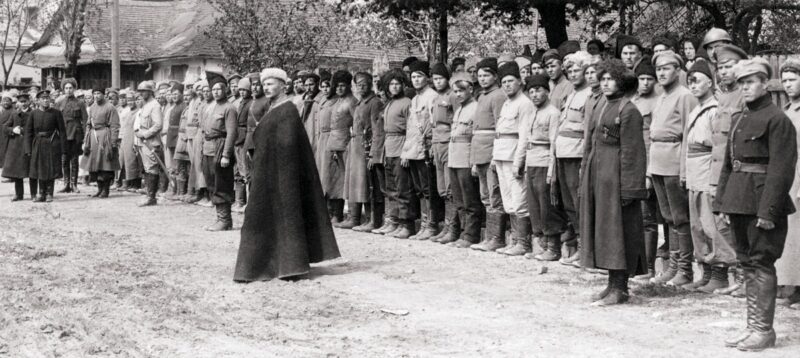
Sokol admits that Petliura regarded Jews as “natural allies” in the struggle for Ukrainian independence. But he reminds readers that he did not take serious steps to rein in pogromists and rarely or belatedly punished them.
Sokol criticizes the former Ukrainian president, Petro Poroshenko, for having tried to turn the Babi Yar killing site — where Nazis murdered 33,000 Jews — into “a generic symbol of human suffering” and “to memorialize members of the OUN alongside the Jews.”
What is clear from Sokol’s book is that both sides, Russia and Ukraine, have attempted to exploit antisemitism for their own expedient ends.
